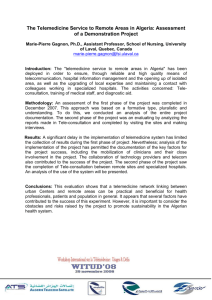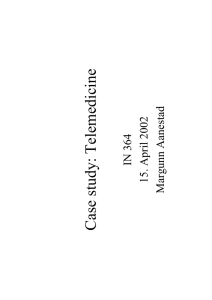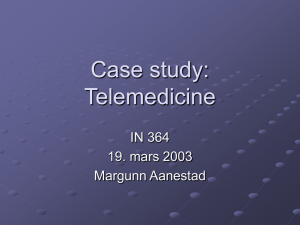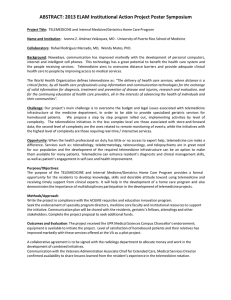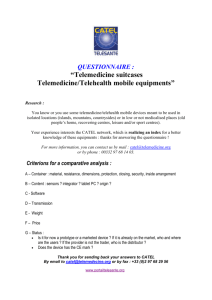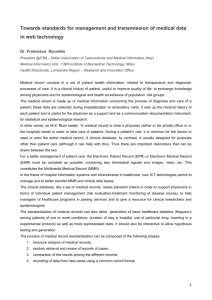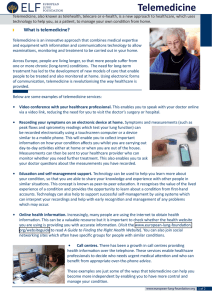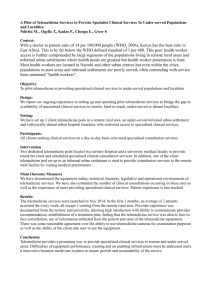CYBERCITIZEN
advertisement
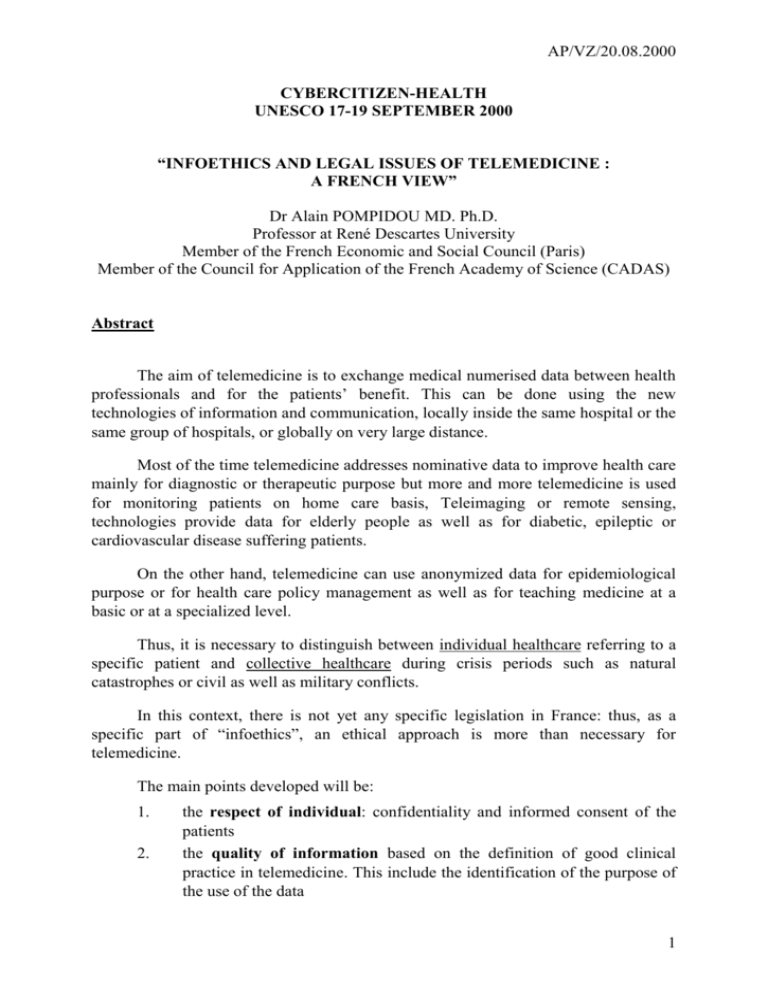
AP/VZ/20.08.2000 CYBERCITIZEN-HEALTH UNESCO 17-19 SEPTEMBER 2000 “INFOETHICS AND LEGAL ISSUES OF TELEMEDICINE : A FRENCH VIEW” Dr Alain POMPIDOU MD. Ph.D. Professor at René Descartes University Member of the French Economic and Social Council (Paris) Member of the Council for Application of the French Academy of Science (CADAS) Abstract The aim of telemedicine is to exchange medical numerised data between health professionals and for the patients’ benefit. This can be done using the new technologies of information and communication, locally inside the same hospital or the same group of hospitals, or globally on very large distance. Most of the time telemedicine addresses nominative data to improve health care mainly for diagnostic or therapeutic purpose but more and more telemedicine is used for monitoring patients on home care basis, Teleimaging or remote sensing, technologies provide data for elderly people as well as for diabetic, epileptic or cardiovascular disease suffering patients. On the other hand, telemedicine can use anonymized data for epidemiological purpose or for health care policy management as well as for teaching medicine at a basic or at a specialized level. Thus, it is necessary to distinguish between individual healthcare referring to a specific patient and collective healthcare during crisis periods such as natural catastrophes or civil as well as military conflicts. In this context, there is not yet any specific legislation in France: thus, as a specific part of “infoethics”, an ethical approach is more than necessary for telemedicine. The main points developed will be: 1. 2. the respect of individual: confidentiality and informed consent of the patients the quality of information based on the definition of good clinical practice in telemedicine. This include the identification of the purpose of the use of the data 1 AP/VZ/20.08.2000 3. the modality of payment and/or reimbursement Regarding the current and increasing needs of the patients and that of medical practice, three major issues are the basis of “infoethics” in telemedicine: - the respect of individual the quality of information the regulation of the modalities of payment All these issues depend upon the responsibility of patients, healthcare professionals and policy decision makers through a new social contract properly adjusted to the rapid development of telemedicine. A global network for healthcare based on the use of new information and communication technologies is now close to reality and necessitate an ethical and legal approach based on “infoethics” in telemedicine. References Internet, Telematics and Health. Technology and Informatics 36. IOS Press 1997 Handbook of Telemedicine. Technology and Informatics 54. IOS Press 1998 “Infoethics”, 25 January 1999 organized by Professor Alain POMPIDOU: http://pacte.tethys-software.fr Telemedicine in the 21st Century: Workshop Proceedings 4-5 November 1999, Strasbourg, France World Conference on Telemedicine, Global Information Society, 22-24 March 2000, Toulouse, France G8 Global Health Care Applications Project (GHAP), Final Conference, 4-5 May 2000, Berlin, Germany The Ethics of Space Policy, Alain POMPIDOU, COMEST, UNESCO, June 2000 2
